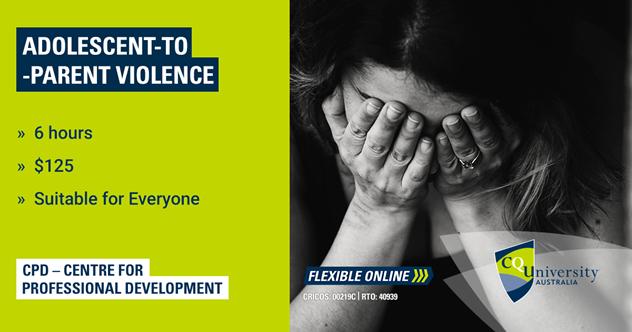
4 minute read
Micro-credentials – the way of the future?
Humans have lots of reasons for learning.
We may want to reduce the deficit in our knowledge because we are curious, or think that if we know more, we can be more independent, and perhaps improve how we do things.
Advertisement
It may be that, in a competitive job market, we want to give ourselves the “edge” over others in the recruitment race.
In a time of rapid change, it feels like every week in our professional - and personal lives- we encounter areas that are new to us!
When frontline services and agencies face emerging issues, such as adolescent to parent violence, they grapple with how best to respond. Learning more about the topic is a means to build confidence in deciding how best to act – in this case, intervention options with families.
There are many ways to learn. You could sit at your desk and access reputable websites for hours, but having invested the time and energy in seeking out knowledge, how is your learning effort recognised?
Another way to learn at your desk is through accessing an online option through an education provider. The benefit of undertaking this approach is that your time and energy may be recognised through the completion of, for example, a micro-credential.
For the more ambitious, of course, there are study options that require more of your time and energy – such as studying an individual unit, or a number of units that constitute a course.
In this article, we’ll explore more of the former and learn about micro-credentials available at CQUniversity (as at February 2021).
Get to know micro-credentials at CQUniversity
01. Micro-credentials vary to meet the wide variety of professional development needs of students, employers, industry, and business.
02. In August 2019, Emeritus Professor Beverley Oliver (p. 18) wrote that “there is as yet no universally agreed definition (or spelling) of ‘micro-credential’. A casual search of Google Scholar suggests the term first appeared in about 2013, often in connection with digital badges, and it… is now generally used to describe all manner of shorter form learning experiences, using a variety of names and brands, of all types, modes and sizes.”
03. In line with the global movement towards flexible learning, CQUniversity recognises that microcredentials are a certification of “assessed learning that is additional, alternate, complementary to or a component part of a formal qualification” (Oliver 2019, p. 19), and as such, they may be non-creditbearing or credit-bearing*.
04. A ‘non-credit bearing’ micro-credential is one that is not aligned to an approved award course by nature of learning outcomes and assessment, so this type of micro-credential does not contribute to gaining a formal qualification. However, this is not to say that non-credit bearing micro-credentials do not constitute high-quality professional development and they may be accredited or recognised by industry.
05. Digital Badges are a digital visual recognition of learning achievement, and depending on the study undertaken, represent the completion of nonaccredited and/ or accredited learning.
06. CQUniversity’s Centre for Professional Development has a range of micro-credential options available. These span diverse areas, including communication, leadership, and social innovation.
07. CQUniversity’s internal, peer assessment process at the relevant Course Committee is responsible for the approval of micro-credentials. This ensures that each course meets its stated objectives and that its constituent units/modules achieve optimal learning outcomes for students. CQUniversity strives to maintain rigorous standards in approving its academic courses to meet its mission and strategic goals.
FREE MICRO-CREDENTIAL:
PDC78319: The First 1000 Days - Stronger Foundations
Summary: This three-hour online micro-credential provides you with an understanding of why the early years of a child’s life are critical in impacting on a range of outcomes throughout the life course. It provides a noncreditable micro-credential and digital badge which can be shared to your social networks and displayed in your professional portfolio. To learn more click here.
*A ‘credit-bearing’ micro-credential is one that is a subset of an approved award course, by volume of learning. It has a discrete assessment, that if completed, aligns to and maintains the integrity of the learning outcome of the award course from which it is derived. In other words, it may be recognised towards completion of an award course. At this stage, there are no Domestic and Family Violence Practice related micro-credentials that are ‘credit-bearing’.

Latest domestic and family violence Micro-credential
Adolescent to Parent Violence is a six-hour online Short Course that provides the participant with the skills and knowledge to appropriately identify adolescentto-parent violence and support families where there is adolescent violence at home. It provides a non-creditable micro-credential and digital badge which can be shared to your social networks and displayed in your professional portfolio. To learn more about PDC73556: Adolescent to Parent Violence click here.
Reference
Reference: Oliver, B., 2019, Making micro-credentials work for learners, employers and providers, Deakin University







